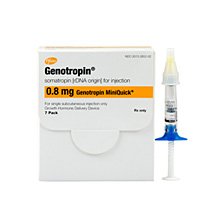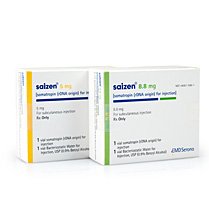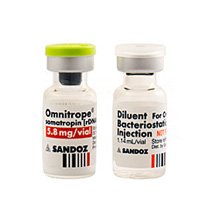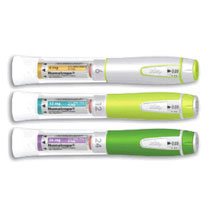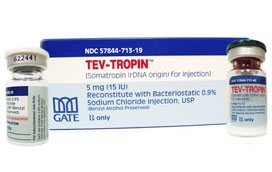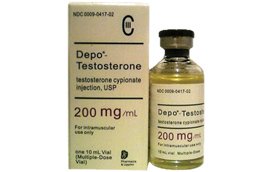HGH Deficiency Signs and Symptoms in Adults

Identifying HGH deficiency signs and symptoms in adults is a task best handled by doctors who specialize in hormone replacement therapy (HRT). All too often, men and women with adult growth hormone deficiency (AGHD) hear that these are typical signs of aging. They are not! It is not normal to wake up tired all the time, have no interest in activities you once enjoyed, and watch your body degenerate in front of your eyes.
The field of HRT is like any other medical specialty. Doctors trained in this area have extensive knowledge and experience you do not find in general practitioners. An orthopedic surgeon operates on bones, not hearts, or brains. The same applies to the balancing of the body’s critical hormone levels. An HRT specialist can readily identify the growth hormone deficiency signs and symptoms long before other physicians, reducing the need for potentially invasive and costly diagnostic testing.
GH deficiency symptoms range from mildly annoying ones, such as trouble falling asleep and joint pains, to ones that can be debilitating, such as overwhelming fatigue, depression, and osteoporosis.
With symptoms of HGH deficiency affecting a person’s appearance, mood, health, and brain functions, it can seem daunting to determine a diagnosis. The problem magnifies because AGHD can affect every person differently.
HGH deficiency signs and symptoms in adults can affect all areas of life and may appear different from one person to the next.
Understanding Adult Growth Hormone Deficiency
Growth hormone deficiency symptoms do not appear out of nowhere. Unless a person experienced a traumatic head injury or has a fast-growing brain tumor, it is more likely that the changes associated with AGHD occurred gradually, over many years.
Here are the most common causes of adult growth hormone deficiency:
- Tumor in the pituitary gland or hypothalamus
- Surgical or radiation treatment of the tumor
- Traumatic head injury
- Impaired blood supply to the brain
- Childhood-onset GHD
- Sarcoidosis
- Opioid abuse
- Subarachnoid hemorrhage
- Certain infections or inflammatory diseases
- Sheehan’s syndrome
- Unspecified causes, including age-related decline (weight gain, lack of exercise, and stress all increase HGH deficiency risk)
As with many other hormones, GH levels decline as a person ages, often beginning the decrease in the mid-twenties. Depending on the speed of the reduction in growth hormone production, symptoms may start to appear ten, twenty, or more years down the road. Most of the HGH deficiency signs and symptoms in adults mimic those expected with natural aging, such as:
- Wrinkles
- Weight gain
- Low libido
- Forgetfulness
- Fatigue
Yes, the body does change as we age, but the signs of low HGH differ considerably, as they encompass a vast array of alterations that can influence overall quality of life. Gaining a few pounds because you ate at your favorite buffet is expected. However, an increase in abdominal adiposity for no reason is cause for concern.
Although the body does not need as much growth hormone as during puberty when GH had to fuel growth, it is still a critical chemical necessary for metabolism, immunity, libido, brain and heart health, and much more at every age.
The signs and symptoms of adult HGH deficiency can affect heart health, brain functions, metabolism, immunity, libido, and more.
Signs and Symptoms of Adult HGH Deficiency
By identifying the symptoms of HGH deficiency in adults, HRT specialists can order the necessary diagnostic tests to determine appropriate treatment protocols. AGHD in and of itself is not life-threatening. Hormonal decline can, however, lead to more severe health complications. That is why an understanding of the signs of HGH deficiency can provide earlier detection and treatment.
HGH Deficiency Signs and Symptoms in Adults | |
Cell Regeneration
| Loss of muscle mass resulting in less strength, and decreased functions Reduced bone mineral density (brittle bones) Shrinkage of internal organs (impaired functions) Decreased collagen and elastin production Loss of melanocytes responsible for hair color |
Body Composition and Appearance
| Weight – increased abdominal and overall body fat Muscles – reduced muscular tone and shrinkage Skin – increased wrinkles, sagging, thinning, age spots, cellulite, dryness Hair – thinning, loss, slow growth, brittle texture, color turning grey Nails – chipping, brittle, breaking, thinning, slow growth |
Metabolism
| Impaired lipolysis Food conversion to fat, not energy Insulin resistance Higher blood glucose levels Poor thermoregulation and sensitivity to hot and cold changes in temperature |
Brain
| Reduced concentration Poor attention Slow or impaired learning abilities Impaired spatial processing Memory loss or forgetfulness Mental fatigue Reduced drive and motivation Mood swings Depression Increased stress, irritability, anxiety |
Immunity
| Diminished ability to fight off invading microorganisms due to thymus shrinkage Frequent or longer-lasting illness Decreased ability to heal from injury Slow recovery |
Cardiovascular
| Reduced cardiac muscle mass Elevated triglycerides Increased total and LDL cholesterol Lower HDL cholesterol levels Atherosclerosis plaque accumulation in the arteries Accelerated atherogenesis (increased carotid intima-media thickness) Decreased cardiac functions Impaired capacity for exercise High blood pressure Reduced circulation Increased risk of cardiovascular disease and chronic heart failure |
Other
| Male breast tissue enlargement or swelling Trouble sleeping, insomnia Increased inflammation, including c-reactive protein levels Decreased productivity |
Quality of Life | Lack of energy, fatigue, low endurance Joint pains Muscle and body stiffness Lower libido Impaired sexual functions: erectile dysfunction, vaginal dryness PMS and menopausal symptoms Reduced self-esteem Social isolation |
Long-Term Effects of HGH Deficiency on Adults
The list of growth hormone deficiency signs is long, and it is easy to see how a person could feel depressed when experiencing many of the potential symptoms. Changes in appearance, health, and physical abilities can interfere with daily life. However, it is the long-term effects of AGHD that are even more damaging.
When a person ignores the HGH deficiency in adults symptoms listed, they continue to worsen over time as GH levels sink lower. Issues such as weight gain, insulin resistance, and high blood pressure and cholesterol levels are markers for metabolic syndrome. Together, these factors increase the risk of developing cardiovascular disease, and type 2 diabetes, two conditions that increase morbidity and mortality rates.
- Risk Factors Associated with HGH Deficiency in Adults
- Atherosclerosis
- Osteoporosis
- Type 2 diabetes
- Metabolic syndrome
- Chronic heart failure
- Cardiovascular disease
- Heart attack
- Stroke
- Depression
- Obesity
- Dementia
Be taking early action to reverse the HGH deficiency signs and symptoms in adults, the risks associated with these conditions also decline.
Treatment for HGH Deficiency
Early intervention is beneficial when dealing with growth hormone deficiency symptoms and treatments. People who recognize these changes early in the process can receive secretagogue therapy. Typically using either ipamorelin or sermorelin injections, the purpose of the secretagogue is to stimulate increased production of GH by the pituitary gland. The natural boost in growth hormone secretion can help improve all functions associated with this essential hormone.
Secretagogue therapy is safe, as the hypothalamus will not allow the pituitary gland to overproduce growth hormone. The most common side effect is a bit of redness, irritation, or pain around the injection site, similar to what you would expect with any shot.
For those individuals already experiencing significant HGH deficiency in adults symptoms, the best option for treatment is HGH therapy. Recombinant human growth hormones contain the same molecular structure as GH. Rather than boosting GH production, HGH provides an immediate supply of exogenous human growth hormones ready for use by the body’s receptor cells.
Our doctors base the prescribed treatment on various factors, including the level of deficiency, as shown by blood analysis, reported symptoms, and overall health of the individual.
If you believe you are suffering from any of the HGH deficiency signs and symptoms in adults listed above, please contact Greenberg Health to speak with one of our hormone medical advisors. Your telemedicine consultation is complimentary, confidential, and with no-obligation, so call today.


















 Norditropin
Norditropin